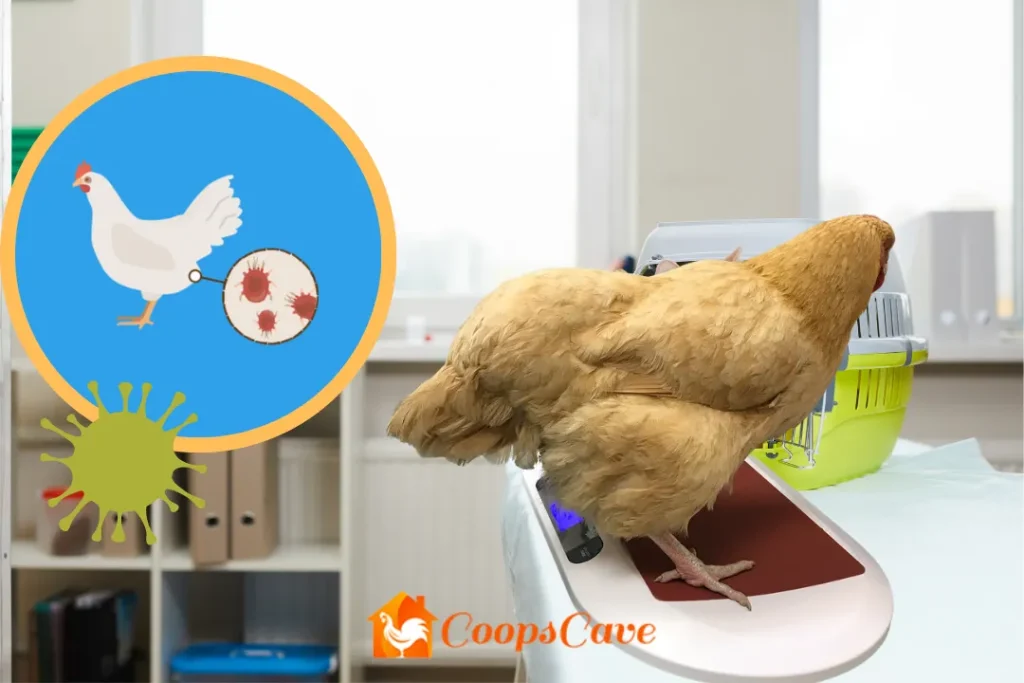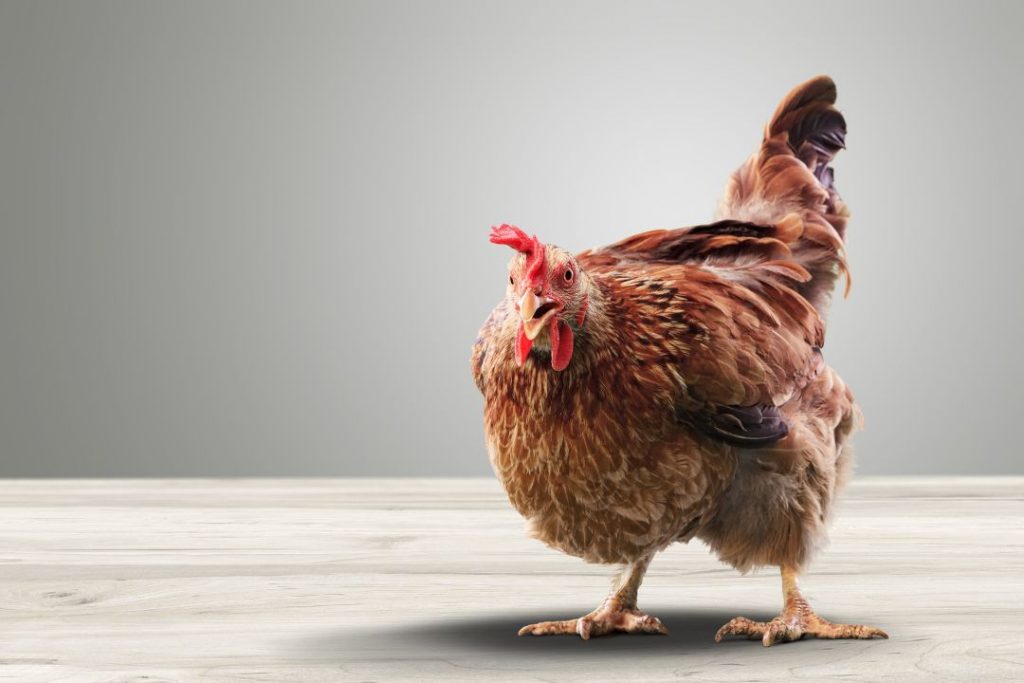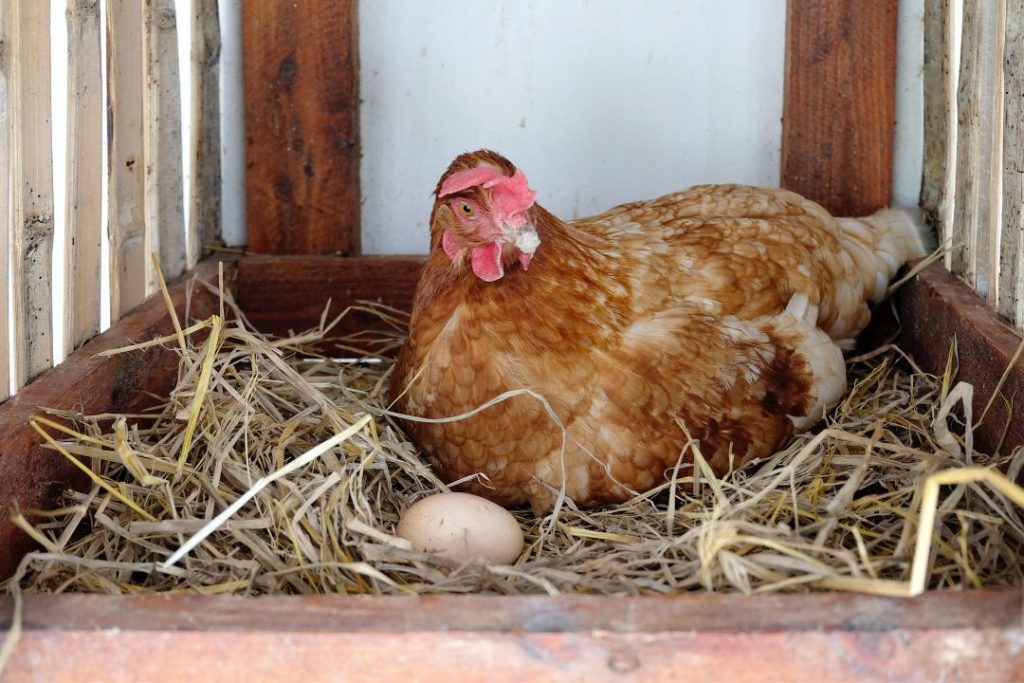If you’ve ever asked yourself, “What is fly strike?” you’re not alone. This common yet often overlooked condition can affect your chickens, causing significant distress.
Fly strike is a parasitic condition. It occurs when certain species of flies lay their eggs on another organism, typically on your chicken. The larvae (maggots) feed on the host’s tissue when the eggs hatch. It often leads to severe infection and your hen’s other health complications.
The causes of fly strikes in your chickens are poor hygiene, injuries and wounds, and underlying health conditions. When a fly strike attacks your chickens, the common symptoms are changes in your chicken’s behavior, visible larvae, and physical discomfort.
This article will comprehensively help you to understand fly strikes, their causes, symptoms, and treatment options. So, let’s start reading!
What Is Fly Strike?
Have you ever wondered what the term “fly strike” meant after hearing it? Although myiasis, another name for fly strike, may sound like something from a horror movie, it truly threatens hens.
Consider an example of being contentedly pecking away in your coop; you are a chicken. A fly lands on you out of the blue. It’s not just any fly but a particular species drawn to moist, unclean environments or open wounds. This fly isn’t simply there to annoy you; it serves a more evil intent.
The fly uses its skin to lay its eggs. These tiny, nearly undetectable eggs are destined to cause many problems. The eggs develop into larvae quite quickly. These larvae, commonly referred to as maggots, only exist to feed. Unfortunately, your chicken’s tissue is their preferred feed.
Yes, these larvae eat away at your chicken’s skin by tunneling into it. If this procedure isn’t stopped immediately, it’s hazardous and can cause serious health problems.
Understanding what fly strike is, is the first step in preventing and treating this condition. With this knowledge, you can take the necessary measures to protect your chickens from this unpleasant condition.
Flies play a crucial role in fly strikes. They are attracted to damp, dirty conditions and wounds, where they lay their eggs. The life cycle of a fly strike involves egg-laying, hatching into larvae, feeding, and maturation. This cycle can occur rapidly, causing your chicken’s severe damage.
Causes Of Fly Strike In Chickens
Several factors can make your chickens susceptible to fly strikes. Let’s delve into these.
1. Poor Hygiene
Poor hygiene is a significant cause of fly strikes. Dirty, damp conditions attract flies, increasing the risk of fly strikes.
2. Wounds and Injuries
Open wounds and injuries can also attract flies. These provide an ideal site for flies to lay their eggs.
3. Underlying Health Conditions
Certain health conditions, like diarrhea or skin infections, can increase your chicken’s risk of fly strike.
What Are The Symptoms of Fly Strike?
Recognizing the symptoms of fly strikes is crucial for timely intervention. The signs are:
1. Visible Larvae
One of the most apparent signs of a fly strike is the presence of larvae on your chicken’s skin.
2. Changes in Behavior
Affected chickens may exhibit changes in behavior, such as restlessness, loss of appetite, or isolation.
3. Physical Discomfort
Chickens with fly strikes may show signs of physical discomfort, like constant preening or difficulty moving.
How To Treat A Fly Strike?
Prompt treatment of fly strikes is essential to prevent complications. Here’s what it involves.
1. Removing Larvae
The first step in treating fly strikes is removing the larvae. This should be done carefully to avoid causing further harm.
2. Cleaning and Disinfection
After larvae removal, the affected area should be cleaned and disinfected to prevent secondary infections.
3. Veterinary Care
In severe cases, veterinary care may be necessary. This can include wound care, antibiotics, or other supportive treatments.
How To Prevent Fly Strike?
Prevention is the best approach to fly strikes. Here are some strategies to consider.
1. Maintain Cleanliness
Keeping your chickens and their coop environment clean can significantly reduce the risk of fly strikes.
2. Regular Checks
Regular checks can help detect early signs of fly strike, allowing for prompt treatment.
3. Manage Injuries and Health Conditions
Properly managing injuries and underlying health conditions can also help prevent fly strikes in your chicken.
Final Thoughts
So, what is fly strike? It’s a distressing condition that can affect your chickens, caused by flies laying eggs on their skin. Recognizing the causes and symptoms can aid in timely treatment and prevention. It ensures the well-being of your feathered friends.



